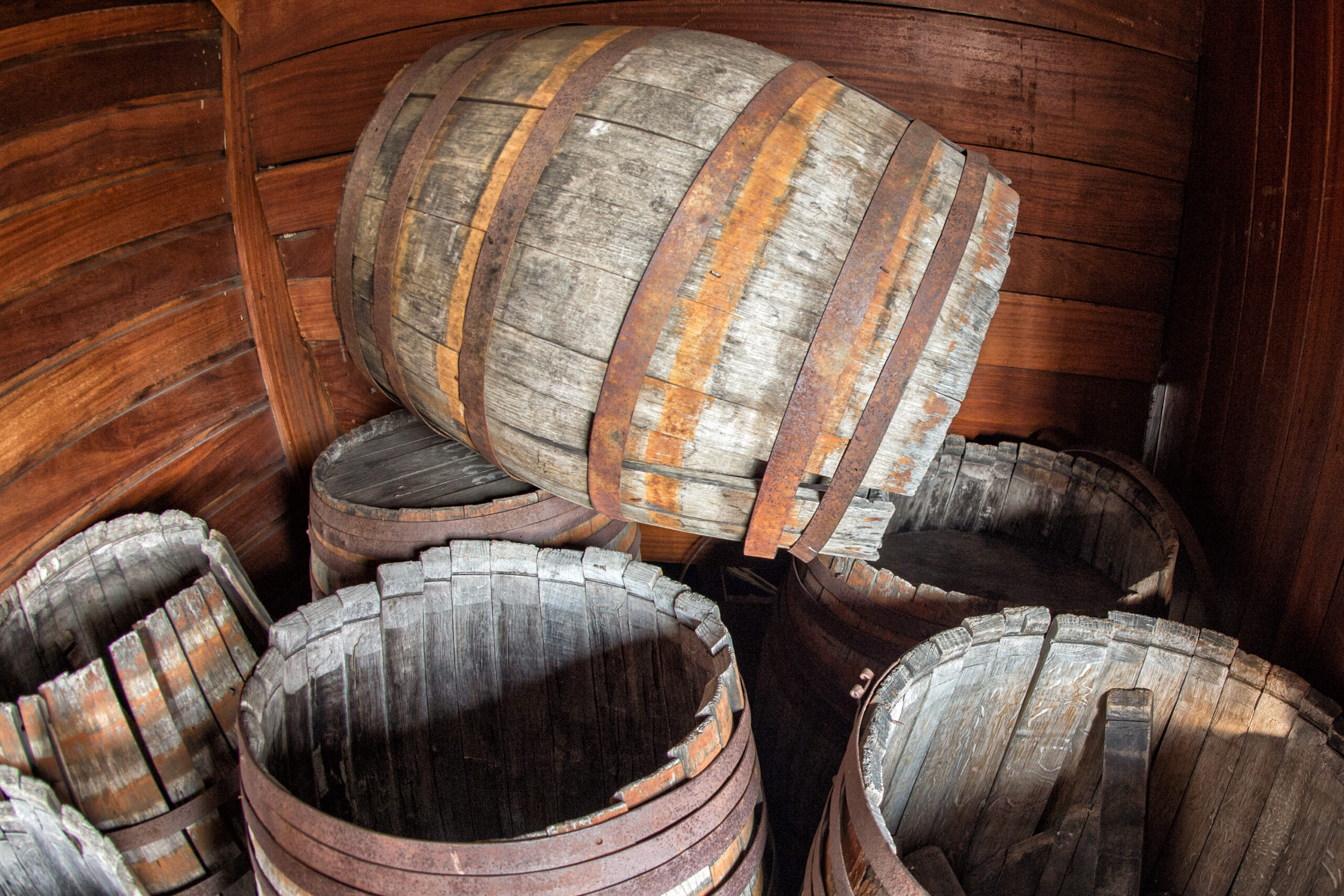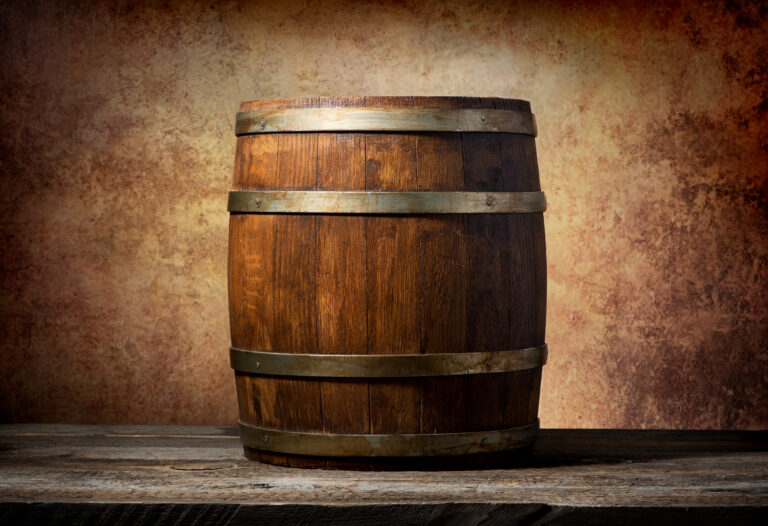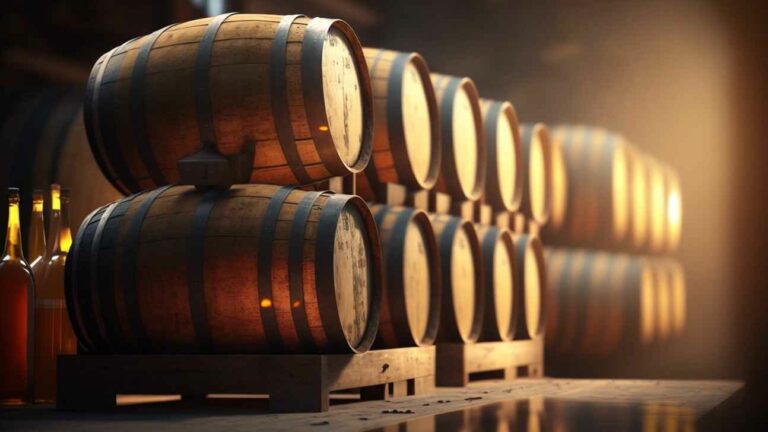Ever stared at a stack of empty drums behind a restaurant or lurking in an industrial zone and wondered, “Where do those things really go?” It’s a fair question, and here’s the kicker: how we ditch those used barrels can seriously impact our planet. As a business owner or even a homeowner, understanding your role in responsible barrel disposal isn’t just good practice—it’s crucial. Mishandle them, and you’re looking at potential chemical leaks, contaminated soil and groundwater, or even physical hazards. Yikes!
This isn’t the most glamorous topic, I’ll admit, but it’s super important for keeping our environment, health, and safety in check. In this guide, we’ll dive deep into everything you need to consider when you’re getting rid of those empty containers. You’ll learn how to figure out if a barrel is good for barrel reuse or needs proper barrel waste management, the right way to empty and clean barrels, and how to guarantee they’re tossed in a truly eco-friendly manner. Stick with me, and you’ll get the full lowdown on how you can contribute to better environmental barrel disposal. Trust me, Mother Earth will be sending you a big thank you note!
What Are the Main Environmental Concerns With Barrel Disposal?
Let’s be real, barrel disposal isn’t just about tossing something out; it comes with some significant environmental baggage you absolutely need to be aware of.
One of the biggest worries? Chemical contamination. If those industrial drums aren’t disposed of correctly, the chemicals they once held—think petroleum products, potent solvents, or even pesticides—can seep into our soil, pollute waterways, and taint precious groundwater. These hazardous materials are no joke and can wreak havoc on ecosystems.
Then there’s the landfill problem. When steel drums and other empty barrels end up in landfills, they take up a ton of space and, frankly, they’re not exactly quick to decompose. They can sit there for decades, slowly releasing those harmful chemicals. And don’t even get me started on burning them. Barrel incineration unleashes a cocktail of toxic fumes into the air, adding to air pollution.
Here’s the silver lining: barrel recycling and barrel reuse are way better options. Many industrial containers can be reconditioned and given a second life, whether for their original purpose or something new. If they can’t be reused, the scrap metal from steel barrels can be recycled into brand-new products, a fantastic example of resource conservation.
Proper waste management, like recycling, isn’t just about tidiness; it helps conserve natural resources and significantly cuts down on pollution. Plus, it ensures that any hazardous waste is handled by trained professionals with the right gear, keeping everyone safe.
And a crucial point: sticking to environmental regulations for barrel disposal is non-negotiable. Illegal dumping of barrels can lead to massive fines, serious legal trouble, and a whole lot of environmental damage. So, do the right, ethical thing – make sure your used barrels are disposed of properly. Your future self, and the planet, will high-five you for it!
Ultimately, the best strategy is to reduce waste from the get-go. Only buy the bulk containers you truly need, and strive to reuse them as many times as possible before even thinking about disposal. Every little bit truly helps when we’re talking about environmental protection.
The Dangers of Improper Barrel Disposal for Soil Contamination
Let’s talk dirt, literally. When industrial drums aren’t disposed of properly, the consequences for our environment, particularly soil and groundwater contamination, can be incredibly severe.
Imagine this: barrels, often filled with various chemicals and waste, are carelessly dumped in landfills. Over time, these materials leach out, seeping into the very ground beneath our feet. These environmental pollutants then make their way into groundwater aquifers, tainting our vital water supply. And it’s not just a localized issue; these contaminants can spread for miles, impacting entire communities.
The Toxins in Question
So, what kind of nasty stuff are we talking about? Common barrel pollutants include heavy metals like lead, mercury, and arsenic, along with organic compounds such as benzene, toluene, PCBs, and dioxins. Even in tiny amounts, these poisons pose serious health risks, from cancer and organ damage to birth defects. That’s why hazardous waste management is so critical.
Proper barrel disposal is absolutely essential to prevent this kind of widespread pollution and protect public health. Just tossing empty drums in the trash or illegally dumping them is not only dangerous but also against the law.
How You Can Help
As an individual, you should never attempt to dump barrels yourself. If you witness any illegal dumping, report it to the authorities immediately. You can also advocate for stronger legislation around safer waste disposal practices and encourage businesses to adopt more sustainable waste management solutions.
Barrel reuse or barrel recycling is always the ideal choice when possible. If barrel disposal is unavoidable, those used drums should be thoroughly emptied, cleaned, and punctured to prevent further use before being sent to approved hazardous waste collection sites.
With a bit of care and a whole lot of responsibility, we can dispose of barrels in an environmentally friendly way. Our communities and future generations will genuinely thank us for keeping these contaminants out of our water, air, and soil. Together, we can build a healthier planet, one properly disposed barrel at a time.
How Barrel Leachate Can Contaminate Groundwater Supplies
Ever heard of barrel leachate? It sounds a bit technical, but it’s essentially the nasty, contaminated liquid that oozes out of barrels over time. As those chemical drums age and break down, chemicals can seep out, contaminating the surrounding soil and, more critically, our groundwater. This is a massive environmental concern that makes following barrel disposal regulations absolutely paramount.
Barrel Contents Pollute Groundwater
Think about what’s stored in these barrels: chemicals, petroleum products, industrial waste. These often contain highly toxic pollutants like benzene, lead, or mercury. Even after barrels are “emptied,” tiny, residual amounts cling to the inside, continuing to leach out. And over decades, the metal barrels themselves corrode, releasing even more contaminants into the environment.
Rain and Spills Accelerate Leaching
When rainwater gets into discarded empty barrels, it acts like a turbo-charger for the leaching process. The water mixes with the chemicals and waste, then overflows onto the ground. Uncovered barrels are also a direct conduit for rain and spills to flow straight into the soil. Either way, those contaminants then slowly percolate down, eventually reaching our groundwater aquifers and wells, posing serious risks to public health and the environment.
Proper Disposal is Critical
To stop barrel leachate from poisoning our groundwater, industrial drums must be disposed of correctly and according to strict regulations. This usually involves removing any remaining contents, thoroughly rinsing the barrels, and then puncturing or crushing them to prevent liquid collection. Finally, they need to be taken to approved waste collection sites. Some areas might mandate that used barrels are emptied and recycled, while others require disposal in specially lined landfills. Just remember, illegal dumping of barrels directly contributes to this pollution, and the fines can be hefty!
By understanding how barrel leachate contaminates groundwater and the sheer importance of responsible disposal, we can all play our part in protecting this absolutely vital resource. Safeguarding our groundwater means safeguarding our health, our communities, and the generations to come. While properly disposing of empty containers takes time, money, and effort, the reward—potable groundwater and a clean environment—is unequivocally worth it.
The Air Pollution Caused by Barrel Incineration
Let’s talk about what happens when used barrels are burned. When industrial drums undergo barrel incineration, it’s not just a puff of smoke; it’s a release of toxic fumes into the air. The chemicals contained within those barrels transform into gaseous pollutants that have a significant negative impact on our environment. This process directly contributes to air pollution and has severe environmental impacts.
Particulate Matter
Burning chemical drums releases tiny particles known as particulate matter (PM) into the atmosphere. Specifically, PM2.5 refers to microscopic particles smaller than 2.5 microns, which are small enough to deeply penetrate our lungs. Exposure to high levels of PM2.5 has been strongly linked to serious health issues like asthma, lung inflammation, and even heart disease. It’s a major concern for public health.
Volatile Organic Compounds
Barrel incineration also churns out volatile organic compounds (VOCs) such as benzene, formaldehyde, and dioxins. Benzene is a well-known carcinogen, while dioxins can cause reproductive and developmental problems. VOCs are also a key ingredient in the formation of ground-level ozone, which is a primary component of harmful smog. This contributes to smog formation and further degrades air quality.
Greenhouse Gases
The combustion of industrial waste containers emits carbon dioxide, methane, and nitrous oxide – all powerful greenhouse gases that trap heat in our atmosphere. By releasing these gases, barrel burning directly exacerbates the climate crisis and accelerates global warming. The more barrels that are incinerated, the more these harmful emissions accumulate in the environment, a significant environmental concern.
Heavy Metals
Certain heavy metals like lead, mercury, and cadmium vaporize during high-temperature barrel incineration. Once released into the air, these metals can travel long distances before settling into the soil and water. Heavy metal pollution poses severe health and environmental risks due to their extreme toxicity and persistence in our ecosystems.
Dioxins
Among the most dangerous chemicals released during barrel burning are dioxins. These are highly toxic chemicals known to be carcinogens and endocrine disruptors. They also have a troubling tendency to accumulate in the food chain, even at low levels. Dioxin exposure, even in small amounts, may lead to reproductive issues, impaired immune function, and various types of cancer.
As you can clearly see, the air pollution resulting from barrel incineration has devastating consequences. Reducing and preventing these toxic emissions is absolutely crucial for public health and environmental protection. Safer disposal methods, like barrel recycling, can help minimize pollution and pave the way for a more sustainable future for us all.
Following EPA Guidelines for Proper Barrel Disposal
Seriously, following the EPA guidelines for proper barrel disposal isn’t just a suggestion; it’s absolutely essential for protecting our environment. When used barrels are mishandled, it can lead to rampant soil and groundwater contamination, which in turn harms precious ecosystems and impacts our public health. This is where environmental compliance really comes into play.
Identify the Contents
First things first: you must figure out what was in that barrel. Scour the industrial drum for any labels or markings that offer clues about its past contents. If you’re drawing a blank, it’s smart to have the contents tested by a professional waste testing company. Why? Because the correct disposal methods depend entirely on the specific chemicals or hazardous materials involved.
Empty and Rinse Thoroughly
Next, get every last drop or speck of liquid or solid out of that barrel. Then, rinse the empty container multiple times. Use water, or a solvent that won’t react with the previous contents. Keep rinsing until the water runs completely clear. Every bit of residue needs to be removed to prevent potential reactions during disposal and ensure barrel safety.
Puncture or Crush Barrels
Once those chemical drums are thoroughly rinsed, you need to puncture or crush them. This prevents any possibility of them being reused and guarantees that all contents have been fully emptied. Usually, just one hole in the top and one in the bottom is enough. For certain chemicals, crushing the industrial barrel might even be a requirement. Always double-check with your local regulations for the specifics.
Dispose of Properly
How you actually dispose of the barrels hinges on several factors: their past contents, your local environmental regulations, and the waste disposal options available in your area. Here are some common approaches:
- Recycling: If your barrels held non-hazardous contents, they can often be recycled. Check with your local recycling centers to see if they accept industrial drums. This is a great way to contribute to waste reduction and resource conservation.
- Landfilling: Barrels with inert, solidified residues that meet landfill acceptance criteria can be sent to designated landfills. Again, check with your local landfill for their specific rules on hazardous waste disposal.
- Incineration: Barrels that held combustible or organic residues might be incinerated at approved hazardous waste incinerators. Remember, this is a controlled process designed to minimize harmful emissions.
- Reconditioning: If barrels are structurally sound and held compatible chemicals, they can sometimes be reconditioned for reuse. Reputable reconditioning companies will meticulously test, clean, and re-certify the barrels, promoting barrel reuse and a circular economy.
Properly handling and disposing of used barrels is vital for protecting both health and the environment. By diligently following EPA guidelines and cross-referencing with your local environmental regulations, you can ensure your barrel disposal practices are safe, responsible, and fully compliant. That small extra effort makes a huge difference in environmental protection.
Recycling and Reusing Barrels to Reduce Waste
When it comes to cutting down on barrel waste, barrel recycling and barrel reuse are truly your best allies. It’s all about keeping those industrial drums out of landfills and giving them a new purpose!
Donate Used Barrels to Local Organizations
You’d be surprised how many community organizations are thrilled to get their hands on used barrel donations. Think food banks, animal shelters, schools, and even community gardens. They often repurpose plastic drums or steel drums for storage, collecting rainwater, or even as creative craft projects. Reach out to organizations in your area; they’ll usually tell you exactly what types of empty containers they need. Dropping off those used barrels is such an easy way to promote waste diversion and community engagement.
Sell or Give Away Barrels for Home Use
If your barrels are in good, food-grade condition, there’s a strong market for them among homeowners. You can easily sell or give away industrial drums on platforms like Craigslist, Facebook Marketplace, or even through your local recycling center’s bulletin board. Home gardeners, in particular, frequently use plastic barrels for composting, rainwater harvesting, and general storage. Just be sure to clearly state what the barrel previously contained so the new owner can properly clean and prepare it for their intended use. This is a fantastic way to promote repurposing barrels.
Donate to Barrel Recycling and Upcycling Companies
Some companies specialize in taking used barrels and transforming them into fantastic new products – talk about upcycling! They turn empty containers into everything from unique furniture and planters to creative storage solutions. These companies typically accept barrel donations and handle the entire recycling process. Do a quick online search for “barrel recycling” plus your location to find businesses near you. Many will even pick up barrel donations for free! This is a prime example of sustainable practices that keep barrels out of landfills and give them a second life as eco-friendly products.
Reuse Barrels Within Your Own Operation
If it makes sense for your business, seriously consider reusing barrels within your own operations. Industrial containers are incredibly versatile and can be super useful for storage, transportation, and even waste collection. Properly cleaned drums can safely hold raw materials, finished products, non-hazardous waste, or even equipment. Reusing your own barrels helps maximize their lifespan and significantly cuts down on disposal costs. With regular inspections and re-conditioning, some barrels can be reused for many, many years, embodying true resource efficiency.
Following these steps to recycle and reuse barrels is a truly environmentally-friendly way to reduce barrel waste. Keeping those empty drums out of landfills by donating, reselling, or repurposing them benefits both your company’s bottom line and the community at large. It’s a win-win for sustainable waste management.
Storing Barrels to Prevent Spills and Leaks
Storing industrial drums carelessly is just asking for trouble – think spills, leaks, and widespread environmental contamination. It’s incredibly important to take smart precautions to prevent these headaches and ensure barrel safety.
Keep Barrels Upright and Secure
Seriously, never, ever store barrels on their sides. Always keep them in an upright position so the lids and bungs are facing skyward. And don’t just leave them freestanding; secure those chemical drums to prevent them from tipping over, which is a surefire way to cause spills and leaks. You can strap drums together, bolt them to the floor or wall, or invest in a proper barrel rack for organized and safe barrel storage.
Inspect Barrels Regularly
Make it a habit to frequently check your used barrels for any signs of damage or leaks. Look for dents, rust, or corrosion, and address them immediately by repairing or replacing the empty containers as needed. Tighten or replace loose bungs and seals right away to nip any potential spills in the bud. Regular barrel inspection is key for spill prevention.
Store Barrels in a Covered Area
Keep your industrial barrels in a covered shelter. This protects them from the harsh elements like rain, snow, and sun exposure. Weather and temperature fluctuations can accelerate barrel deterioration and significantly increase the chances of spills or leaks, leading to environmental damage.
Use Secondary Containment
This is a big one for environmental protection. Always place barrels on an impermeable surface within a secondary containment system. This could be a concrete berm or a robust plastic tub. Secondary containment acts as a safety net, catching any spilled or leaked materials in the unfortunate event of a barrel failure. It’s crucial for hazardous material storage.
Label Barrels Properly
Every single barrel needs to be clearly labeled with its contents and any relevant hazard warnings. Proper barrel labeling is not just about organization; it’s vital for quick identification in an emergency and ensures the correct handling, storage, and eventual disposal.
Train Employees on Proper Handling
Anyone who handles and transports industrial drums needs to be thoroughly educated on proper techniques to minimize risks. Comprehensive training on inspecting, moving, opening, and closing barrels can significantly help prevent environmental issues and promote overall workplace safety.
By diligently following these best practices for barrel storage and handling, you can effectively avoid spills, leaks, and contamination. Take all necessary precautions to keep the local environment clean and the community safe. Regularly monitor your barrel storage areas and update your procedures as needed to prevent problems from cropping up. Your proactive approach in waste management makes a world of difference.
Choosing Greener Alternatives to Traditional Barrels
When it comes to industrial containers, opting for greener alternatives to traditional barrels is a fantastic move for the environment. There are some really smart choices out there that prioritize sustainability and environmental protection.
Recycled Plastic Barrels
Think about plastic barrels made from recycled plastics, especially HDPE (High-Density Polyethylene). HDPE is widely recycled, which means choosing these barrels helps reduce waste in landfills and cuts down on pollution. When you’re shopping, make sure you’re looking for barrels specifically manufactured from recycled content, not just ones that are recyclable themselves. It’s a great example of circular economy principles in action.
Reconditioned Barrels
Reconditioned barrels are essentially used barrels that have been given a new lease on life. They’re thoroughly refurbished, cleaned, and resealed for reuse. Choosing reconditioned barrels over brand-new ones significantly reduces the need for raw materials and the energy intensive manufacturing process. When going this route, pick a reputable company that properly cleans, inspects, and re-coats the barrels to ensure both safety and quality. This is a prime example of barrel reuse and resource conservation.
Biodegradable Barrels
Some innovative companies are now offering barrels made from materials like bamboo, rice hulls, and wheat straw. These biodegradable materials are designed to naturally break down over time. Being compostable, they can release valuable nutrients back into the soil as they decompose. However, it’s worth noting that biodegradable barrels might not have the same longevity or chemical resistance as their plastic or steel counterparts, so consider their intended use carefully. It’s a promising step towards eco-friendly packaging.
Reusable Barrels
For specific applications like storage or transportation, reusable barrels are an excellent eco-friendly choice. The key here is to invest in high-quality industrial drums that are built to last and can withstand being used many, many times over. Proper care is crucial: keep them covered and sealed when not in use, and always follow all safety guidelines. Maximizing the number of times you can reuse a barrel significantly extends its lifespan, contributing to waste reduction and sustainable practices.
By actively choosing alternative barrel options like recycled plastic, reconditioned, biodegradable, or truly reusable barrels, you’re paving the way for a much greener barrel solution. Every small change we make collectively contributes to reducing waste and keeping our planet healthy for future generations. What types of greener barrels have you considered using? I’d love to hear your thoughts and experiences – drop them in the comments below!
The Environmental Considerations of Barrel Disposal FAQs
When you’re dealing with barrel disposal, there are a bunch of environmental factors you absolutely need to keep in mind. It’s not just about tossing something out; it’s about being responsible.
What was stored in the barrels?
This is probably the most critical question. The contents previously stored in those industrial drums will dictate exactly how they should be properly disposed of. Barrels that held hazardous or toxic materials require specialized handling to prevent widespread pollution. Always, always check with your local regulations regarding the disposal of barrels used for chemicals, paints, pesticides, or any other hazardous contents. This is fundamental to hazardous waste management.
Are the barrels reusable?
If your barrels are in good condition, they can often be given a second life through barrel reuse or barrel recycling. Many companies specialize in picking up used barrels for refurbishing and resale. This not only reduces waste but also lessens the demand for new barrels, a win for resource conservation. Reuse and recycling are always the optimal choices from an environmental perspective.
Can the barrels be recycled?
Generally, steel drums and plastic barrels are recyclable, whereas wooden barrels typically aren’t. Check with your local waste and recycling department to understand their specific barrel recycling program. It’s crucial to properly clean and label empty containers before sending them off for recycling. Recycling barrels actively conserves natural resources and significantly reduces landfill waste, contributing to a circular economy.
Do the barrels require disposal?
As a very last resort, some barrels might indeed need to end up in a landfill. Before disposal, make sure you’ve removed any remaining residue or contents. If barrels were used for hazardous materials, they must be taken to a designated hazardous waste collection site. And please, never throw barrels into lakes, rivers, streams, or storm drains, as this poses severe pollution risks and is illegal. This is a key aspect of responsible barrel disposal.
Disposing of barrels responsibly by considering their previous contents, their potential for reuse or recycling, and ensuring proper handling for waste management is incredibly important for environmental well-being and regulatory compliance. Following these basic steps can help ensure your barrel disposal is eco-friendly and helps you avoid legal issues or fines. The environment will definitely send its thanks!
Final Thoughts
So there you have it, folks – the nitty-gritty on how to properly and safely dispose of those used barrels in an environmentally responsible way. Look, I get it, it might take a bit of extra time and perhaps a few more pennies upfront, but ensuring hazardous materials are disposed of correctly is an investment truly worth making for the health of our planet and for generations to come.
Do your part. Make sure any empty containers you need to get rid of are handled by a licensed professional specializing in industrial waste management. The environment will absolutely thank you for it. And honestly? You’ll sleep better at night knowing you didn’t cut corners when it came to environmental protection. Our world is facing enough challenges as it is, so every single step we can all take to minimize pollution and protect our natural resources matters. Proper barrel disposal is an easy win if we all commit to doing our part. So spread the word – our planet literally depends on it!







